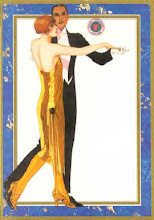Instead of analyzing it, I'm going to quote Roger Ebert and Cathleen Falsani.
From Roger Ebert's review:
Doubt is not intended as a docudrama about possible sexual abuse. Directed by John Patrick Shanley from his Pulitzer- and Tony-winning play, it is about the title word, doubt, in a world of certainty. For Aloysius, Flynn is certainly guilty. That the priest seems innocent, that Sister James comes to believe she was mistaken in her suspicions, means nothing. Flynn knows a breath of scandal would destroy his career. And that is the three-way standoff we watch unfolding with precision and tension.
Something else happens. The real world enters this sealed, parochial battlefield. Donald's mother (Viola Davis) fears her son will be expelled from the school. He has been accused of drinking the altar wine. Worse, of being given it by Father Flynn. She appeals directly to Sister Aloysius, in a scene as good as any I've seen this year. It lasts about 10 minutes, but it is the emotional heart and soul of Doubt, and if Viola Davis isn't nominated by the Academy, an injustice will have been done. She goes face to face with the pre-eminent film actress of this generation, and it is a confrontation of two equals that generates terrifying power.
Doubt. It is the subject of the sermon Father Flynn opens the film with. Doubt was coming into the church and the United States in 1964. Would you still go to hell if you ate meat on Friday? After the assassination of Kennedy and the beginnings of Vietnam, doubt had undermined American certainty in general. What could you be sure of? What were the circumstances? The motives? The conflict between Aloysius and Flynn is the conflict between old and new, between status and change, between infallibility and uncertainty. And Shanley leaves us doubting. I know people who are absolutely certain what conclusion they should draw from this film. They disagree. Doubt has exact and merciless writing, powerful performances and timeless relevance. It causes us to start thinking with the first shot, and we never stop. Think how rare that is in a film.

This is from an article by Cathleen Falsani titled "Beyond the Shadow of a Doubt."
Doubt doesn't give any easy answers. Filmgoers will leave with more doubts, I suspect, than when they arrived. We don't know for sure who's right and who's wrong. That is part of its immense power.
The film is dedicated to Sister Margaret McEntee, a Sister of Charity nun who was Shanley's first-grade teacher and who served as a technical adviser for the movie. She is the real-life Sister James.
"She looked a lot like Amy Adams. She even had the same color red hair," Shanley said. "To me, she is the most obviously sympathetic person ... she's the identification of last resort. Some people strongly identify with Sister Aloysius. And some people identify with Father Flynn. And the rest identify with Sister James."
Doubt is a forceful spiritual commentary, but not one intended to be a commentary on clergy sex abuse.
"I wasn't interested particularly in writing about the church scandals, and I wasn't really interested in writing a whodunit. I'm more interested in people becoming more accepting and comfortable with living with doubt because I think that's one of the big problems we've had in this country in the last decade," Shanley said. "There's been this evaporation of doubt as a hallmark of wisdom. ... Everyone is very entrenched. And true discourse is nowhere to be found. And we're desperate for it."
Without a doubt.
Cathleen Falsani is religion columnist for the Chicago Sun-Times and author of the new book, Sin Boldly: A Field Guide for Grace. A spiritual profile of playwright John Patrick Shanley is included in her 2006 book, The God Factor: Inside the Spiritual Lives of Public People.






0 comments:
Post a Comment